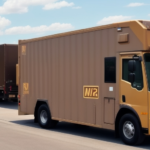Understanding UPS' Over Maximum Limits Fee
UPS is one of the largest logistics companies globally, offering shipping and delivery services to millions of individuals and businesses daily. While UPS is renowned for its efficiency and reliability, it's essential to understand the various fees imposed by UPS to manage shipping costs effectively. One such fee is the Over Maximum Limits Fee, which can significantly impact your shipping budget if not properly accounted for.
What is the Over Maximum Limits Fee?
The Over Maximum Limits Fee is a charge applied by UPS to shipments that exceed the company's size and weight restrictions. Specifically, if a package surpasses the maximum dimensions or weight limits set by UPS for a particular service level, an additional fee is incurred. These limits vary based on the chosen service level and the shipment's destination.
Factors Determining the Fee
Several factors influence when UPS charges the Over Maximum Limits Fee:
- Package Size and Weight: Exceeding UPS's established maximum dimensions or weight for a selected service level triggers the fee.
- Service Level: Different UPS services (e.g., Ground, 2nd Day Air, Next Day Air) have varying size and weight limits.
- Destination: International shipments may have different thresholds compared to domestic ones.
- Package Type: Shipping hazardous materials or oversized items can lead to additional fees or restrictions.
Additionally, UPS may calculate package weight differently, using dimensional weight pricing, which considers the package's volume relative to its actual weight. This method can result in higher charges, especially for lightweight but bulky packages.
The Impact of the Over Maximum Limits Fee on Your Business
For businesses that rely heavily on shipping products, the Over Maximum Limits Fee can have a substantial effect on profitability and operational costs.
Cost Implications
Excessive fees arising from oversized or overweight packages can erode profit margins. According to a 2023 Statista report, logistics costs account for approximately 10-15% of a company's revenue, with shipping fees being a significant component. Unexpected fees can disrupt budget forecasts and pricing strategies.
Real-Life Business Examples
Consider a small online retailer specializing in furniture. Due to the bulky nature of their products, shipments frequently exceed UPS's size and weight limits, leading to recurrent Over Maximum Limits Fees. This situation not only increases shipping costs but also makes it challenging to remain competitive in pricing.
Strategies to Avoid or Minimize the Over Maximum Limits Fee
To prevent incurring the Over Maximum Limits Fee, businesses can implement several strategies:
Reviewing Size and Weight Limits
Before shipping, verify that your packages comply with UPS's size and weight restrictions for the chosen service level. UPS provides detailed guidelines on their official packaging guidelines, which can help ensure compliance.
Optimizing Packaging
Reducing the size and weight of packages can help avoid additional fees. This can be achieved by:
- Using appropriately sized boxes without excessive empty space.
- Selecting lightweight packaging materials.
- Removing unnecessary packaging components.
Using UPS' Pack and Ship Promise
UPS offers the Pack and Ship Promise service, which guarantees coverage for additional costs related to packaging, shipping, and delivery, even if the package exceeds size and weight limits. While this service may involve extra costs, it provides peace of mind and cost predictability for businesses with irregular shipping needs.
Negotiating Shipping Fees
High-volume shippers may have leverage to negotiate lower shipping rates with UPS. Engaging directly with a UPS account representative to discuss shipping volume and potential discounts can lead to more favorable pricing structures.
Comprehensive Guide to UPS Shipping Fees
Beyond the Over Maximum Limits Fee, UPS implements a variety of other charges that businesses should be aware of:
Residential Surcharge
UPS imposes a Residential Surcharge on packages delivered to residential addresses. This fee compensates for the additional time and resources required to navigate residential areas compared to commercial locations.
Address Correction Fee
If the recipient's address is incorrect or incomplete, UPS may charge an Address Correction Fee to rectify the delivery details. Ensuring accurate and complete addresses can help avoid this unnecessary expense.
Calculating Shipping Costs with UPS
Accurately calculating shipping costs involves considering all potential fees. UPS provides a Shipping Cost Calculator tool on their website, allowing businesses to estimate costs by inputting package dimensions, weight, origin, and destination.
Comparing UPS with Other Logistics Companies
When evaluating shipping providers, it's beneficial to compare UPS's fees and services with those of its competitors, such as FedEx and DHL.
FedEx
FedEx offers similar services to UPS but may have different pricing structures and fee policies. For instance, FedEx uses dimensional weight pricing, which can impact costs similarly to UPS. Businesses should compare specific services to determine the most cost-effective option.
DHL
DHL specializes in international shipping and may offer more competitive rates for cross-border shipments. However, domestic shipping options might be less extensive compared to UPS and FedEx.
Refer to the UPS Shipping Comparison Guide for a detailed analysis of how UPS stacks up against other logistics providers.
The Future of UPS Shipping Fees
The logistics industry is continually evolving, influenced by factors such as technological advancements, regulatory changes, and shifting consumer behaviors. UPS is anticipated to adapt its fee structures accordingly. Key trends include:
- Increased Automation: Automation in warehousing and delivery may reduce operational costs, potentially lowering shipping fees.
- Sustainability Initiatives: Investments in eco-friendly practices could introduce new fees related to carbon offsetting or sustainable packaging.
- Dynamic Pricing: Enhanced data analytics may enable UPS to implement more dynamic pricing models based on real-time demand and supply factors.
Staying informed about these trends will help businesses anticipate and adapt to changes in shipping fees.
Common Misconceptions About Shipping with UPS
Several myths surround UPS's shipping services. Addressing these misconceptions can lead to more informed shipping decisions:
UPS is the Most Expensive Shipping Option
While UPS may be pricier than some competitors for specific services, their extensive network and reliability often justify the cost. It's essential to compare rates for your particular shipping needs rather than assume uniform pricing.
UPS Only Handles Large Packages
UPS offers a wide range of services catering to packages of all sizes, from small parcels to oversized freight. Utilizing the appropriate service level can optimize cost and delivery efficiency.
All UPS Fees Are Fixed
UPS employs variable pricing models, including dimensional weight and dynamic pricing, meaning shipping costs can fluctuate based on package characteristics and market conditions. Understanding these variables can help avoid unexpected fees.
Resources for Further Information
For comprehensive details on UPS fees and services, refer to the following official resources:






















